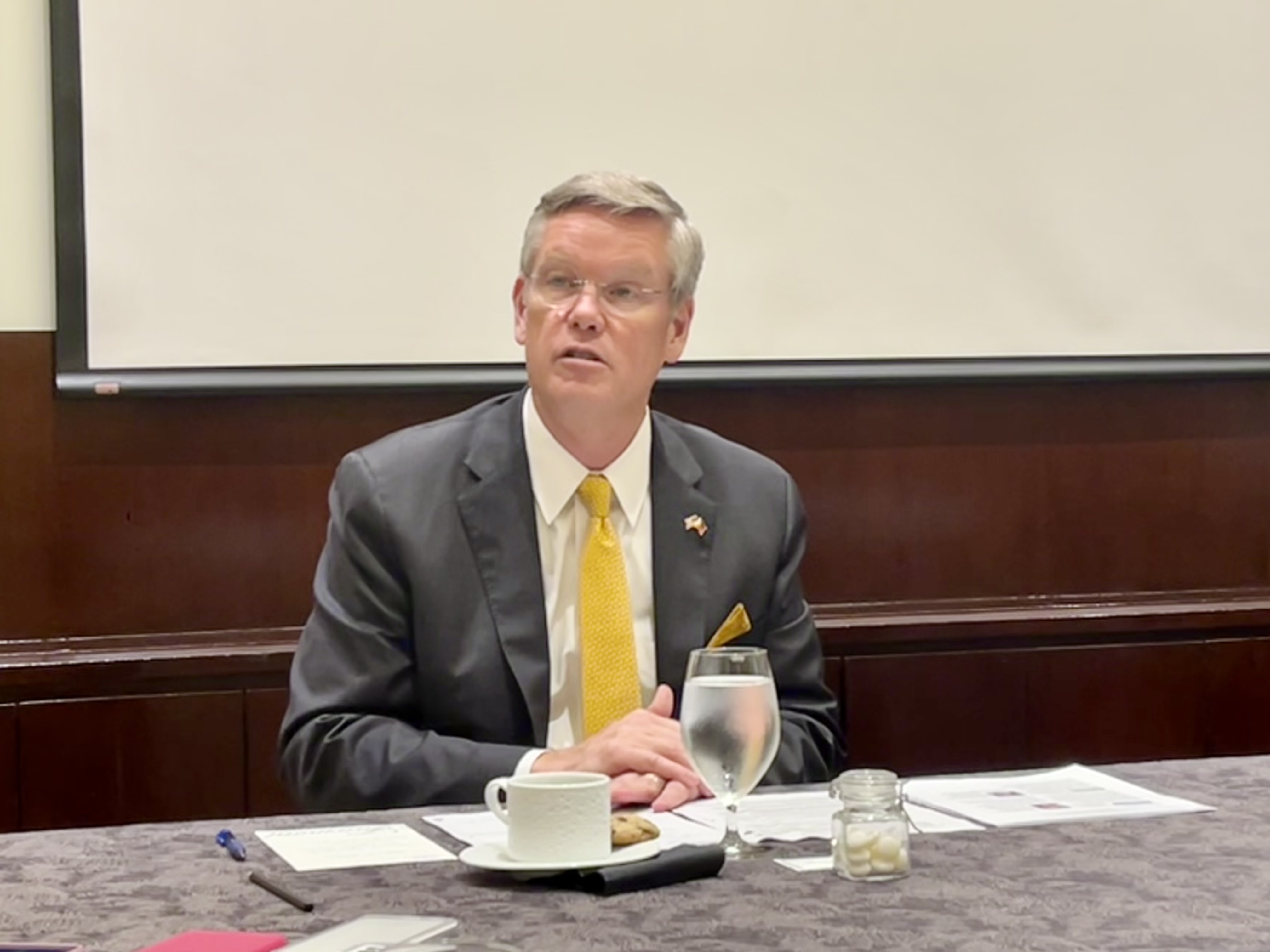Leadership change won’t affect US-PH nuclear cooperation — US NRC

The United States’ commitment to aid the Philippines to foray into nuclear power generation will not be affected by leadership change, as the US presidential elections in November draws near, the US Nuclear Regulatory Commission (NRC) said Thursday.
At a media roundtable in Makati City, US NRC chairman Christopher Hanson said, “Agreement, like 123 Agreement, are designed to last across multiple administrations because nuclear power projects last across multiple administrations.”
“So there's a little bit of looking into the future that's associated with these things… the United States, our commitment will remain firm,” Hanson said.
The US NRC chairman added that there will be no slowing down of cooperation between Washington and Manila “even with upcoming elections.”
Last week, the US and the Philippines Agreement for Cooperation in Peaceful Uses of Nuclear Energy or 123 Agreement entered into force.
The agreement provides for the safe and secure use of nuclear energy for peaceful purposes, for information, knowledge, and technology exchange related to nuclear safety, security, and non-proliferation.
The accord aims to facilitate Philippine-US cooperation for the transfer of information, nuclear material, equipment and components taking into full account the standards and safeguards set by the International Atomic Energy Agency (IAEA), as well as in accordance with their respective national laws, international agreements, and regulations.
Hanson said he is in the Philippines for a two-day visit to demonstrate his agency's “commitment to supporting its Philippine counterparts as well as the importance of nuclear regulation and associated nuclear safety and security capacity building as the Philippines considers its nuclear energy future.”
“My focus and the reason I'm here is mostly on the regulatory and the safety front,” he said.
As the 123 Agreement entered into force, the US NRC chairman said the Philippines should expect “increase in the tempo of engagement from the US on the nuclear safety aspects.”
“You're going to see an increase in the activity and the support that the US Nuclear Regulatory Commission is going to be providing to the PNRI (Philippine Nuclear Research Institute) and also kind of its hopefully successor organization as the regulatory body,” Hanson said.
“In fact, we're going to be talking about the program of work and priorities for the future while I'm here. We're going to hold a workshop here that is going to be kind of what we call our nuclear executive workshop, which is kind of the top-level framework about how the US approaches this and I hope enables the Philippines to think about how they might like to pursue the development of their regulatory body,” he added.
Energy Secretary Raphael Lotilla earlier said that the Nuclear Energy Program-Inter-Agency Committee (NEP-IAC) is now finalizing the country’s nuclear energy program roadmap which outlines key targets that must be achieved for the successful use of nuclear energy for power generation.
“Under the 2023-2050 Philippine Energy Plan (PEP), the entry of nuclear power generation capacities is targeted in 2032 with at least 1,200 MW, and additional 1,200 MW by 2035 and 2,400 MW by 2050,” Lotilla said. —RF, GMA Integrated News




